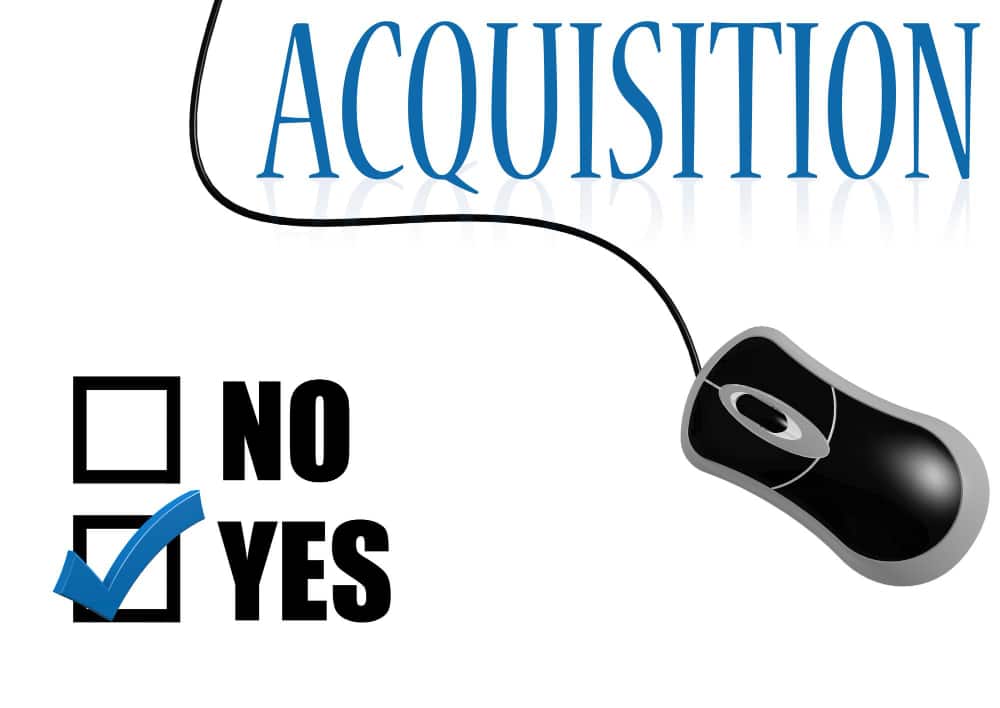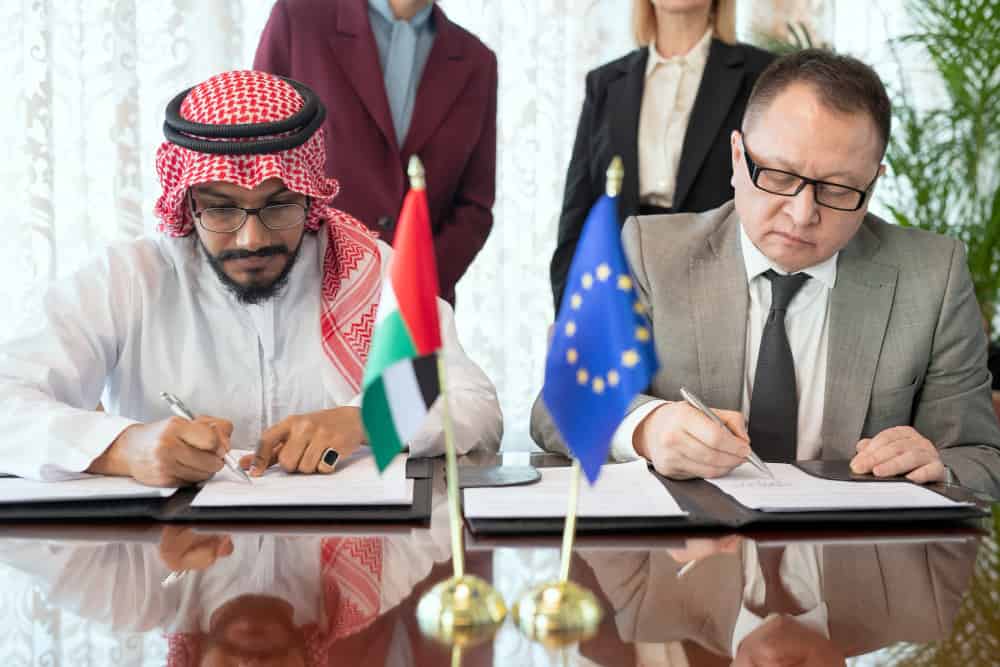- Introduction
- Why Do Businesses Opt For Mergers And Acquisitions in UAE?
- Broad Legal Framework of Merger and Acquisition in the UAE
- Laws regulating Mergers and Acquisitions in the UAE
- Foreign Ownership Restrictions in the Merger and Acquisition in the UAE
- What Are The Different Types Of Mergers And Acquisitions In UAE?
- Benefits for mergers and acquisitions in UAE
- Two Notable Mergers and Acquisitions in Dubai
- Conclusion
Introduction
Mergers and acquisitions (M&A) join legally independent commercial organizations to generate synergy. It results in expanding their market presence and earnings. This tactic has been used to grow commercial activities since the beginning of global commerce.
The economic and business effects of these transactions benefit all parties involved. M&A also influences the business environment in the nations where the parties are based.
Why Do Businesses Opt For Mergers And Acquisitions in UAE?
Most companies merge with or acquire other companies for several reasons, which includes:
- When business activities are merged, there is a positive increase in the business’s overall performance efficiency at a reduced expense. This is because the transaction allows each company to leverage the other company’s strengths.
- Through a merger, the acquiring company can be granted an opportunity to grow its market share effortlessly.
Merging and acquiring allows the involved companies to increase their supply-chain pricing power. A company can eradicate an entire tier of costs when buying out one of its suppliers or distributors. For instance, a company buying out a supplier allows it to save on the margins the supplier previously added to its costs. Similarly, a company buying out a distributor enables it to ship out products at a lower cost.
Broad Legal Framework of Merger and Acquisition in the UAE

The following points are crucial to understanding the merger and acquisition process in the UAE:
- Currency: The United Arab Emirates official currency is the dirham. It is subdivided into 100 fils. It is one of the most stable currencies in the world and is pegged to the US dollar. Officials view it as advantageous to peg the country’s currency to the US dollar due to its reliance on the oil industry. Since 1997, the exchange rate has stood at about 3.67 dirhams per US dollar.
- Division of powers: The United Arab Emirates is a federation of seven independent emirates. Since each Emirate already had its own established government institutions before the nation’s formal creation, the federal government’s powers have only gradually expanded in this context. The executive, legislative, and judicial departments of government are divided into independent roles under the United Arab Emirates’ constitution. Federal and Emirate jurisdictions each have their own legislative and executive branches.
- Licensing requirements: Several common and uncommon licenses may be required to register a company in Dubai. Clients can be confident that a business is legitimate and compliant with all applicable local laws thanks to licenses provided by the DED. Each new company in Dubai must have the appropriate license to establish a long-term business setup. The kinds of enterprises, corporate structures, and jurisdictions in which you conduct business decides the license you require and the laws and regulations that apply to your business.
- Doing business: Each Emirate has different rules about what foreign and partly foreign-owned local businesses can do. At the moment, foreign investors who want to start doing business in the UAE can establish a presence “onshore” or in one of the numerous free zones developed across the UAE. The free zone companies regulations and other rules and regulations of such free zones apply to corporate organizations incorporated there. Companies with “strategic impact” that are set up in the UAE (outside of a free zone) must be owned by a UAE national or the Gulf Cooperation Council (GCC). But, foreign companies can own free zones in the UAE.
Mergers and acquisitions in the UAE, especially Abu Dhabi, have made it an attractive market for companies. It has turned out to be beneficial for both domestic and international businesses.
Laws regulating Mergers and Acquisitions in the UAE

The important laws which regulate the merger and acquisition process in the UAE are:
- Federal Commercial Companies Law,1984
- Competition Law of 2012
- Consumer Protection Law of 2006
- UAE Labour Law,1980
Federal Commercial Companies Law, 1984
Under the law, Article 276 to Article 280 deal with the “Amalgamation of companies” chapter.
The act says that a company can merge with another target company of the same type or a different type. The merger can happen in either of the following ways:
- Merger – By putting an end to two or more businesses and transferring their debts to an existing business. These include vertical mergers and horizontal mergers.
- Consolidation – By the dissolution of two or more concerns. And the incorporation of a new concern to transfer liabilities of dissolved concerns.
The Merger and acquisition process in the UAE starts three months after sending the notification to the Register of Commerce. The act has given Creditors a strong voice in the review process. Creditors can file a complaint within three months. The M&A process halts if a violation or abuse is discovered on valid and credible evidence.
SCA approves mergers and acquisitions in the UAE of publicly traded companies. A listed company on the stock market wholly owned by the government can start the M&A process after getting approval under separate laws.
Competition Law, 2012
Before passing the Competition Act in 2012, the Federal Commercial Company Act oversaw mergers and acquisitions in the UAE. With the passing of the Competition Law, regulators turned their attention to how companies behave in the market. It was about abuse of dominant position, controlling mergers, and regulating agreements.
One of the most critical parts of the act is the “Mandatory Merger Control Filing Requirement.” It affects the merger and acquisition process in the UAE. Transactions can be stopped while they wait for clearance.
According to the law, the following steps are required in the merger and acquisition process in the UAE:
- Exemptions and merger approvals are sent to the UAE Ministry’s competition department. Along with the application, you must send in certain documents.
- The Department overviews the application and inform the UAE Minister of Economy.
- The Minister then either approve or deny the application. The approval may be conditional. The Minister must decide within 90 days of receiving the application. This time limit can be extended by 45 days, though.
Competition Law also called for rules that would give more information. It provides on how to file complaints. Any stakeholder can file a complaint with the Department about violating Competition Law.
If you don’t follow the approval regime, the abuse threshold, or the restrictive agreements, you have have to pay big fines.
UAE Consumer Protection and Labour Laws

Since M&A is a business deal, the employees of the companies being merged or bought can be affected by the deal. The UAE Labour Laws are also concerned with regulating human resources in mergers and acquisitions in the UAE. They help to stabilize the rights of employees.
The UAE Federal Law, 1980 prescribes essential regulations. It says that an employee (human resource) who has worked for the same company for a year or more is entitled to an end-of-service gratuity. The end-of-service bonus can be twice their annual salary, depending on how long an employee has worked for the company. It means that the total liability could be very high.
The Consumer Protection Law of 2006 also comes to help. It lets the government figure out if a business’s actions have caused prices to go up strangely. It also says that a monopoly can’t be made illegally. The rules are clearer about what businesses can do to increase prices.
Foreign Ownership Restrictions in the Merger and Acquisition in the UAE
The merger and acquisition process in the UAE also takes note of foreign ownership restrictions in the said transactions. The UAE’s onshore foreign investment regime was liberalized in the last two years. Before the FDI reform, only UAE citizens and GCC nationals could own more than 49% market share of onshore UAE companies.
UAE lawmakers liberalized foreign ownership restrictions in 2019. Regulations were earlier unclear. Initial statutes allowed foreign shareholdings above 49% market share in certain circumstances. Local Emirates regulators applied different standards. All regulators restricted the new FDI regime. Later, regulations and guidelines were clarified. Under the current FDI regime, increased foreign shareholding is permissible if the target company is not active in
- Oil exploration,
- Banking and finance,
- Insurance,
- Water and electricity services,
- Postal services,
- Telecommunications,
- Printing and publishing,
- Commercial agency and distributor services, and
- Land and air transport.
In the over 120 activities on the UAE Cabinet Resolution 16/2020 “positive list,” foreign investors can own up to 100% of the business. For a targeted company to have more than 49% market share foreign ownership, it must meet legal requirements. These include a minimum number of Emirati employees and the transfer of knowledge.
Further, several big corporations have raised foreign ownership limits to attract foreign investment. But many UAE-incorporated public companies still ban foreign holdings. Specific regulated industries, such as insurance, prohibit foreign ownership to 25%.
GCC members have similar restrictions. Foreign ownership limitations of other GCC member nations also become significant, primarily when transactions target ADX, DFM, or NASDAQ Dubai-listed firms in other GCC member states.
By legislation, DIFC firms can have foreign ownership. NASDAQ Dubai companies may potentially be affected if their constitutions ban foreign ownership.
What Are The Different Types Of Mergers And Acquisitions In UAE?
There are various types of mergers and acquisition transactions in Dubai that are mostly applied by firms, and they include; –
- Vertical merger. This merger occurs when two or more firms operating at varying levels in an industry’s supply chain merge to carry out their business operations. The two firms produce different products or services for a specific type of finished product.
- Horizontal merger. This is a form of business consolidation that occurs among competing firms that operate within the same space with the end goal of delivering the same product or services. Consequently, intensive competition results in higher potential gains in total market share for the concerned merging firms in the industry.
- Conglomerate merger. This is where different Dubai-based firms engaging in completely unrelated business activities merge. It’s mostly applied where the merging businesses or firms merge to achieve market or product extensions to create diversification.
- Product Extension mergers. This occurs when two or more firms dealing with related products merge to perform their activities within the same market. One of the advantages of this merger is that it helps the concerned firms to bring their products together, thus gaining access to a relatively higher set of customers and high-profit earnings in return.
- Market Extension mergers. This merger occurs when two or more Dubai-based firms deal in the same product(s) but in two different markets. The aim is to ensure that firms involved in the merger agreement gain easy access to any big market across.
Benefits for mergers and acquisitions in UAE
In mergers and acquisitions, a company strategically transfers and combines with another company or purchases a smaller company to form a larger company. Most businesses use Mergers and acquisitions to reduce competition in the marketplace and to increase market share and profits. But, equally, its use as a business expansion method can influence the economy and business environment where these M&A deals are made and where the business is located.
Mergers and acquisitions transactions offer a competitive edge in the market, attracting greater financial strength for the involved companies. Merged or acquired firms operate at an advantage, particularly having greater economic power, leading to higher market share, more influence over customers, and reduced competitive threat. On the other hand, it can be difficult to compete against bigger companies.
Mergers and acquisitions also facilitate access to resources. Through merger and acquisition, firms operating in the same sector can improve access to materials, suppliers, and resources. For example, when a business acquires or merges with its suppliers, it improves production cycles while at the same time guaranteeing access to resources.
In terms of associated risks, mergers and acquisitions allow firms to spread their risk across different revenue streams by diversifying the products or services offered. The advantage is that, in case of a fall in a specific revenue stream, the firm will still run effectively due to the other income streams. This aspect of risk diversification ensures the firm’s long-term sustainability.
Two Notable Mergers and Acquisitions in Dubai

The merger of Abu Dhabi Commercial Bank, Union National Bank, and Al Hilal Bank to create the ADCB Group, valued at USD115 billion, was the most important deal in the UAE banking sector in 2019.
Over the past 12 months, one transaction has dominated the Middle East’s technology market: Uber’s acquisition of Careem, a regional rival ride-hailing service located in the United Arab Emirates. This deal was the largest technology transaction the region had ever seen, with a value of USD3.1 billion.
For an M&A transaction, advisory service by legal consultants is extremely crucial. Several qualified legal consultants have experience in mergers and acquisitions in the UAE. If you are looking for M&A Advisory services, a curated list is easily accessible on Legamart.
Conclusion
With mergers and acquisitions, commercial companies can grow and merge in the middle east and around the world. Global corporations have been drawn to M&A by chance to grow their businesses. It helps them analyze corporate finance and increase the value of their shares.
UAE law, particularly in Abu Dhabi, governs mergers and acquisitions in three areas: corporate law, competition law, and consumer and labor law.
Also, the relaxation of rules about foreign ownership has been very profitable. The creation of free trade zones is an innovation in the sector.
In conclusion, the process of mergers and acquisitions in the UAE has made it an attractive market for domestic businesses that want to grow. Also, the option is viable for international businesses that want to invest in the 7-emirate mainland.
If you want to start the merger and acquisition process in the UAE, you may have many questions. The good news is that LegaMart has got your back. You can drop your questions on our community page, and we’ll get them answered immediately.




